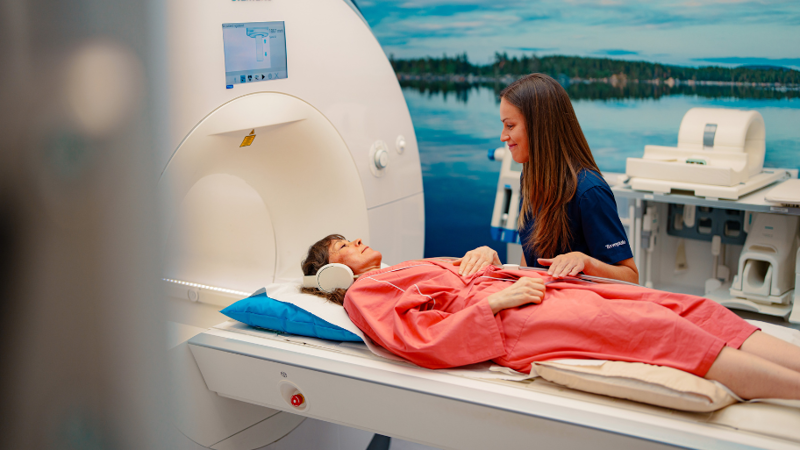Key features of successful remote work management
One of the most powerful drivers of change in working life is technological development. With the Covid-19 pandemic, organisations quickly adopted tools and practices that enabled remote working, and remote management became common. A full return from remote work to local work is unlikely, but making even the hybrid model work requires the creation of appropriate structures for both teleworking and telemanagement.

In the light of the latest knowledge, it can be concluded that managing teleworking for well-being at work emphasises the manager's interpersonal skills, trust, ability to reconcile employees' work and private lives, flexibility and the autonomy given to the employee.
The importance of interaction in teleworking
Face-to-face interaction in a remote environment is particularly important in remote management compared to traditional management. One of the most important tasks of the remote manager is therefore to organise regular face-to-face meetings. The lack of good interaction can lead to the leader missing opportunities to build trust and strengthen a sense of community. Employees who trust their managers are able to communicate effectively and experience less conflict.
For teleworking to be a positive factor for employee well-being, managers should be in contact with employees even on a daily basis to maintain social contact. Research has shown that an organisational atmosphere where difficulties are overcome together has a positive impact on the perceived well-being of the teleworker.
The remote manager is an interpreter of social situations
In remote management, the manager's interpersonal skills are particularly important. The term "supportive leader", often used in the literature, emphasises a leader's ability to be empathetic, appreciative and respectful of his or her subordinates. It is important for a remote leader to be able to communicate openly with his or her subordinates, but they also need to be socially sensitive - a good remote leader is able to take into account the overall well-being and psychosocial situation of his or her employees.
A key factor for the well-being of a teleworker is the ability to reconcile work and private life in a flexible way. Teleworking managers must be able to provide a framework for work and encourage their employees to have clear working hours and adequate rest. In a situation where work-life balance appears non-existent, remote managers should be able to address the issue and create a corporate culture that supports employees' work-life balance and recovery.
Culture to support balance and well-being
Respect for employee autonomy by the remote manager is key to the success of remote working. The manager must provide employees with sufficient resources to make independent decisions. In this way, remote management offers a unique opportunity to re-evaluate existing organisational structures and create a new culture that increases employee autonomy.
Even as the world becomes more digital, people will always be at the heart of what we do. Technological advances will enable new innovations, but ultimately they may be meaningless if managers do not take care of their employees through competent leadership. In the future, the role of managers will play an even greater role in the success of the organisation and the well-being of employees.

Elina Mäenpää, who works at Terveystalo's digital nurse service, delved into the latest research results of remote management as part of her final thesis for her Master's degree in Social and Health Care Development and Management at Oulu University of Applied Sciences.
Read more occupational health articles

Terveystalo's digital services have been awarded the internationally recognized ISO27001 information security certification.
Terveystalo's information security practices, processes, and risk management are in line with international best practices.

Does massage help relieve stress? – Touch restores and calms the body and mind
Stress is not always visible on the outside, but the body does show signs when the strain increases. According to Lassi Ylönen, a trained massage therapist at Terveystalo Rela, the body often communicates stress through subtle signs.

Circular economy and artificial intelligence boost performance and improve care
At the heart of sustainable healthcare, technology serves as a tool for improving both the quality of care and accountability. Terveystalo favors solutions that combine sustainability, cost-effectiveness, and medical expertise.

Psychologist: How to make Christmas a relaxed and personal celebration
For many, the anticipation of Christmas begins when cities are decked out in seasonal lights and the first chocolates, calendars, and gingerbread cookies appear on store shelves. Christmas carols ring out and the Tonttuparaati choir sings “Kiire jo on! Kiire jo on!” (Hurry up! Hurry up!). This warm and atmospheric celebration also brings other feelings to mind: how on earth can we get through all this without losing our joy and peace in the rush?

Terveystalo and Gosta Labs deepen their cooperation: the goal is to streamline work with a superior patient information system
Terveystalo is deepening its cooperation with Finnish health technology company Gosta Labs and investing €1 million in the company as a minority investor. The aim is to jointly develop artificial intelligence solutions that improve the quality of care and the efficiency of reception work as part of Terveystalo's new patient information system, Terveystalo Ella.

First aid preparedness in companies requires action and courage
First aid skills increase resilience, but a barometer survey of Finnish organizations' first aid capabilities published in October reveals that the number of trained personnel is alarmingly low.